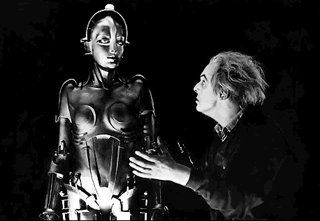 In today’s New York Times Magazine there appeared a short piece titled “Mass-Produced Individuality” that caught my eye. Written by Rob Walker, the piece talks about how companies are offering consumers options for customizing their mass-produced purchases in an attempt to help consumers feel that they are being served as individuals.
In today’s New York Times Magazine there appeared a short piece titled “Mass-Produced Individuality” that caught my eye. Written by Rob Walker, the piece talks about how companies are offering consumers options for customizing their mass-produced purchases in an attempt to help consumers feel that they are being served as individuals.We’ve all heard in recent years (or has it been only months?) about products like the Toyota Scion, the bread-box shaped car that you can “customize” by choosing from lists of features and details from the color of your shift knob to whether or not you have a center arm rest. I’ve also noticed people talking about customizable sneakers (is it Adidas? Nike? Puma? All of the above?) where you get to pick the colors and laces and such. And then there’s Build-A-Bear Workshop at your local mall where kids are taught to expect to be catered to by the mass market, er, I mean where they get to “create” their own new friend.
These offerings seem to be a response by producers to help consumers feel like they have more control over their purchases, and maybe even that they’re getting something of higher quality since it’s “custom.” But I feel that the issue is swaying more toward the realm of overchoice than better choice. (This also smacks of a sprawling of “the blob,” "me-world," and our culture of options – see Tom de Zengotita’s writing, especially his outstanding recent book “Mediated.” Or check out this interview with him in The Brooklyn Rail from May '05.)
But my overwhelming response to the Times’ piece is that if the question is “what can save us” from the homogeneity of mass-production, why is the answer more technology and mass-production? Why not call for a return to small-scale production? I don’t necessarily mean making our own clothes and furniture like Walker mentions at the beginning of the piece, but rather buying quality products from artisans that you don’t need to replace during your lifetime. That way you get to own something that is not only truly unique, but also that is built to last. Because the mass-market relies on things breaking to sustain it—planned obsolescence is still a fact of design, maybe not in all cases, but who has a cell phone that’s lasted more than 2 years? Granted we’re having a hard time finding hand-made cell phones, and that’s not really my point. But I do think that if we want to find a real solution to the problem of preserving consumer individuality perhaps we should consider small-scale, artisan-based production.
From the article:
“Many people used to make their own clothes and build their own furniture. The Industrial Revolution, with technological innovations like power looms and power lathes, and now today's far-flung supply chains, made it easier and more practical to buy ready-made apparel and housewares. Lately, however, mass production has been cast not so much as the best thing that ever happened to consumers but as an annoyance, even a problem. It stands in the way of our individuality. What can save us?
“Of course the answer must be more technological innovation, and in the past several years there have been many attempts to tweak mass production (of everything from sneakers to M&M's) in ways that will deliver "mass customization" and "the one-to-one future," in which every single consumer gets unique treatment. …
“The new version of mass customization does not seek to turn back the clock to [the follow-a-pattern and do-it-yourself] era: do-it-yourself publications like Make and ReadyMade have their constituencies, but most people who want, say, "unique" footwear do not actually want to learn how to manufacture a shoe. They want to pick out a color scheme on a sneaker made by a company with vast and sophisticated manufacturing capabilities. Alienation from the means of production is a selling point."




No comments:
Post a Comment